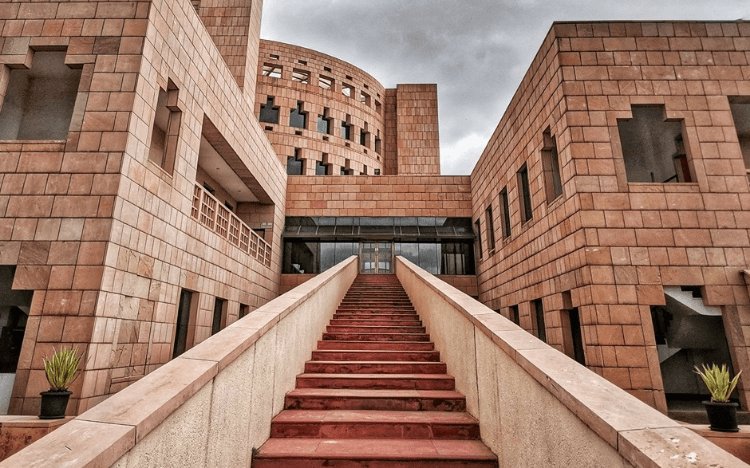
Top 10 Factors to Select the Good MBA Colleges
An MBA from a high-ranking institution is considered to be the key to corporate success. But before jumping onboard the MBA ship, it is imperative to know your destination and chart your course very clearly. Colleges offering management courses may offer a degree or a diploma, depending on their affiliation. Most Top MBA Colleges in India accept the CAT scores, while some have their own entrance exams. XAT, SNAP, NMAT and CMAT are the important MBA entrance exams conducted by reputed universities.
Also Read:
1. Top MBA Colleges in India
2. Top Universities in India
3. Top Engineering Colleges in India
4. Top Schools (10+2) in India
Applying to the right colleges is as important as getting a high percentile in the entrance exams. Until you are very sure which colleges you want to target, your preparation will not be up to the mark. Here are the key factors which impact your decision when choosing a college for business studies:
Faculty:
The faculty in a management college must capable of providing updated knowledge that is useful from the industry point of view. Simply following theoretical knowledge is not adequate for management studies, since ability for solving real life problems must be developed. Experienced faculty who can share insight for leading teams and projects are a must. Plus, the pedagogy must be interactive and appreciate inquisitiveness in students.
A college is only as good as its teachers. Experienced and knowledgeable faculty help students understand complex topics easily. They also bring real-world examples into the classroom, making learning more practical. A good MBA college will have professors with a mix of academic and industry backgrounds. Their mentoring helps students grow personally and professionally. Look for colleges that provide faculty profiles online and check if guest lectures or visiting faculty from top companies are a regular part of learning.Degree or Diploma:
There is very little difference when it comes to being recognised by industry. While a diploma gives you more flexibility in curriculum, a degree may be better if you are aiming further studies abroad. Apart from the IIMs, management studies departments of State and Central Universities and some private Universities recognised by UGC conduct MBA courses and give degrees. On the other hand, the colleges that are accredited by AICTE offer PGDM programs.
MBA programs in India are offered as either a degree (usually by universities) or a PGDM (Post Graduate Diploma in Management) by autonomous institutions. Both are valuable, but understanding the difference is important. Degrees are often more recognized internationally, while PGDMs can offer more updated and industry-relevant curriculum. Ensure the program is approved by AICTE, UGC, or similar bodies. Always check the credibility of the institution offering it before choosing, as this impacts job acceptance and further education options.Placements:
For most students, campus placement is the deciding factor when it comes to choosing an MBA college. Top B Schools in India attract leading companies for placement and assure a handsome package. However, check whether the companies named by the college in placement list visit every year or only occasionally, and also the percentage of students placed in these top companies.
Placements are a major reason why students pursue an MBA. A good college should have a strong placement record with top companies visiting regularly. Check the average salary package, highest offer, and types of roles offered. The quality of companies matters more than just the quantity. Also, look for how active the placement cell is in organizing training, mock interviews, and corporate interactions. Real data from past batches can help you assess the return on investment after graduation.Infrastructure:
An impressive infrastructure that includes computer lab and a vast library is another important factor. Learning resources like journals and case studies must be available. Further, the college must be conducive to overall development of students and conduct events and contests from time to time. Dedicated cells for student welfare, placements, innovation and cultural activities are also part of overall infrastructure of a college.
Modern and well-equipped infrastructure creates a better learning environment. This includes smart classrooms, computer labs, high-speed Wi-Fi, auditoriums, a rich library, hostels, and recreational areas. A good MBA college should also provide access to online learning platforms, group discussion rooms, and industry-standard software. These facilities help students learn comfortably, collaborate effectively, and stay up to date with current business practices. A campus visit or virtual tour is a great way to see how well the infrastructure supports students’ needs.Research Projects:
A university or college that has rich collaboration with industry and attracts real-time projects is the best. Doing projects and solving case studies gives a boost to MBA learnings. Even the curriculum and evaluation must have substantial research-based elements.
A good MBA program includes real-time research, case studies, and industry projects. These activities help students apply theoretical knowledge to real-world problems. Colleges that encourage research often have better academic credibility and partnerships with companies or think tanks. Engaging in research also improves analytical thinking, presentation skills, and teamwork. Whether it’s a summer internship, capstone project, or independent research paper, these experiences help students stand out in job interviews and prepare for leadership or consulting roles in the future.Ranking:
This is another aspect that most students consider at the primary stage of their search for a suitable MBA college. There are a few reliable sources of ranking for the MBA Colleges in India that do in-depth analysis of several critical factors and provide a comprehensive list. While the top 10 colleges require extremely rigorous preparation, even the colleges that are amongst the top 25 are good enough.
Rankings by trusted agencies like NIRF, IIRF, Business Today, or Outlook can give you a general idea about a college’s performance. They evaluate multiple parameters like faculty quality, placements, research, infrastructure, and peer perception. While you shouldn’t rely on rankings alone, they do help shortlist reputable colleges. Always look at rankings across multiple platforms, not just one. Also, read how these rankings are calculated, as it shows what the college excels at and what matters to your career path.Specialisations:
Before you start applying, be sure of the stream of management that you are going to choose for your specialisation. While HR, Finance and Marketing have been the most common streams, more focused ones like facilities/ mall management, healthcare/ hospital management, risk management and those related to managing resources for ecological safety are now gaining popularity. Look for a college that offers these new age streams as well.
MBA is not just about general management. Choosing the right specialisation is key to aligning with your career goals. Common areas include Finance, Marketing, Human Resources, Operations, Business Analytics, and Entrepreneurship. A good college will offer a variety of specialisations along with electives. Also, check if the faculty and industry links for that specialisation are strong. Some colleges are known for excellence in one or two fields—choose based on where you want to build your long-term career.Exchange Programs:
The opportunity of visiting an international university or learning from sought after faculty is a bonus that you get by securing admission in Top B Schools in India. Many universities from across the world have partnered with Indian colleges for providing exchange programs for a few months, wherein students learn management techniques in a global arena.
International exposure is a big advantage in today’s global business world. Many top MBA colleges have exchange programs with foreign universities. These programs allow students to study abroad for a semester or attend short-term global immersion trips. It helps students understand global business practices, improve cross-cultural communication, and build a strong global network. Exchange programs also look good on your resume. Check which universities your college is partnered with and whether these programs are optional or part of the curriculum.Alumni Support:
For a well-established B-school, the support of its alumni counts a lot. It might be for training and internship, placement support, guest lectures or industry projects. Check out from trustworthy sources how strong the alumni network of an MBA college is and how effective is its alumni cell.
An active and successful alumni network adds a lot of value to an MBA college. Alumni can help with mentorship, internships, job referrals, and industry insights. Colleges that stay connected with their former students often host alumni events, guest lectures, and networking opportunities. A strong alumni base across industries shows the long-term strength of the institution. You can also check LinkedIn to see where alumni from a particular college are working—it’s a great way to understand the college’s real impact.Fee and Financing:
You will be able to find out the fee charged by a college for MBA programs on its website. But instead of just considering the fee, you must take into account the overall expenses to be incurred, including accommodation, meals, transport, etc. and check whether it fits in your budget. If you need to apply for a student loan, a high-ranking college will make the approval easier. Some universities offer scholarships to deserving candidates. It will be beneficial if you find out about these and apply for the same within the stipulated time.
MBA is a big investment, so the cost of education is a major factor. Check not just the tuition fees, but also hostel, mess, books, and other hidden charges. A good college offers scholarships, financial aid, or flexible loan tie-ups with banks. Compare the fee with the average placement salary to understand return on investment. Remember, an expensive college is not always better. Choose one that offers quality education, strong placements, and value for money within your budget.
You may start with selecting a particular specialisation, college or city for studying MBA. This will make your search for the ideal Business School easier and more fruitful. Read More about Top Engineering Colleges in India & Top Universities in India
